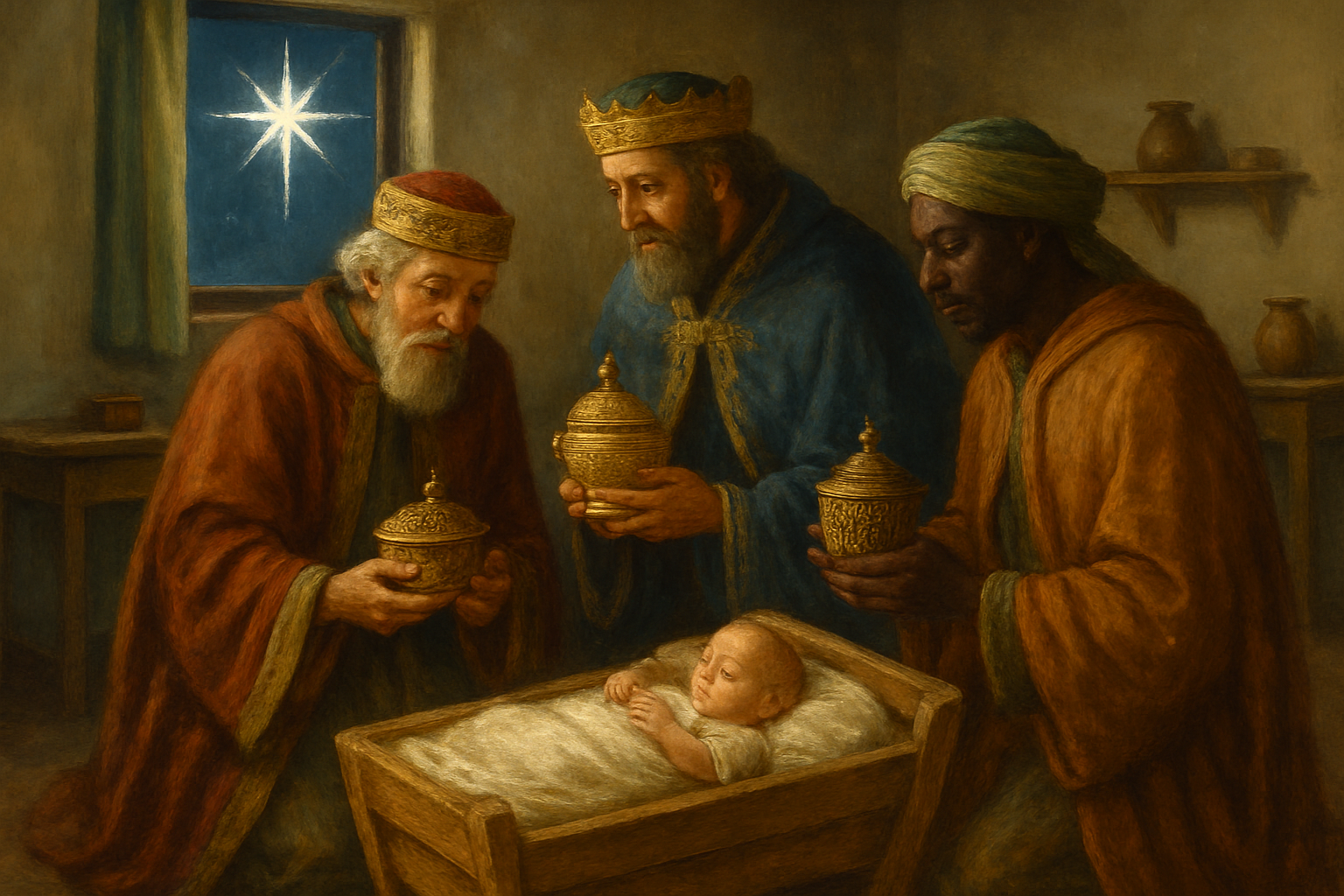Articles
"Train yourself spiritually"
- 1 Timothy 4:8
Embracing Prayer: Insights from the Mount of Transfiguration

The Significance of the Mount of Transfiguration The Mount of Transfiguration is a deeply meaningful moment in the Christian faith. On this mountain, Jesus revealed His divine glory to three of His disciples: Peter, James, and John. As the Gospels tell us, His face shone like the sun, and His clothes became dazzling white. This was far more than a striking scene; it was a powerful spiritual revelation. With Moses and Elijah appearing beside Him, representing the Law and the Prophets, we see how God’s redemptive plan comes together and finds its fulfillment in Jesus Christ.
Read MoreThe Call to Be Salt and Light in the World

Understanding the Sermon on the Mount The Sermon on the Mount is one of the most cherished and significant teachings of Jesus, found in Matthew chapters 5–7. In it, Jesus shares a collection of sayings and teachings that reveal the heart of the Kingdom of Heaven and the kind of life He desires for His followers. He speaks about the Beatitudes, the Lord’s Prayer, the Golden Rule, and much more. A central theme throughout is His invitation for believers to be “salt and light” in the world, people whose everyday lives reflect the beauty and glory of Christ to those around them. The Meaning of Being 'Salt of the Earth'
Read MoreFinding Jesus in His Future: A Journey Through Scripture

Understanding Jesus' Future The Bible offers a rich tapestry of prophecies and teachings about the future of Jesus. From Old Testament promises to New Testament revelations, we see a steady, reassuring message: Jesus’ future is both promised and certain. In Micah 6, the prophet reminds us of God’s enduring purposes for His people, calling us to live with justice, mercy, and humility. In the New Testament, especially in passages like 1 Corinthians 15, we’re invited to rejoice in Christ’s victory, His resurrection, His ascension, and His promised return to judge the living and the dead. As we spend time in these Scriptures, we begin to see that Jesus’ future is not a distant idea but a living, active reality. Even now, He is at work, seated at the right hand of the Father, praying for us, leading His church, and gently guiding us toward a glorious future with Him. This scriptural hope reminds us that Jesus’ future is filled with joy, purpose, and God’s faithful promises coming to fruition.
Read MoreFinding Light in Darkness: Discovering Jesus in His Calling

Recognizing Darkness and the Need for Light In our world, darkness is more than just the lack of physical light; it can also describe seasons of life marked by confusion, sorrow, or feeling lost. Isaiah’s words, “people walking in darkness,” speak to anyone who has ever felt weighed down by life’s burdens or uncertainty. In those times, darkness can feel disorienting, making it hard to see the way forward, and it can seem layered and heavy, like a “land of deep darkness” or a shadow that settles over the soul.
Read MoreDiscovering the Meaning of the Lamb of God in Everyday Life

The Lamb of God: Ancient Symbol, Present Reality The phrase “Lamb of God” is woven deeply into the story of Scripture, stretching from the earliest sacrifices to the coming of Jesus. In John 1, John the Baptist sees Jesus and proclaims, “Here is the Lamb of God, who takes away the sin of the world.” John's words would have stirred the hearts of those listening, calling to mind the Passover lamb whose blood marked the homes of God’s people and the Temple sacrifices offered for forgiveness.
Read MoreFinding Jesus In His Promises: An Epiphany Reflection

Epiphany: Revealing Christ’s Light in Uncertain Times As the Christmas lights are packed away and the festive season fades, many of us can feel the sudden shift back into ordinary days. Yet the Epiphany season reminds us that Christ’s light is not confined to the sparkle of holiday decorations; it continues to shine into every corner of our lives, especially in moments of uncertainty, numbness, or discouragement.
Read MoreFinding Jesus: Lessons from the Magi’s Journey of Faith

Responding to God’s Call The story of the Magi in Matthew 2 invites us to reflect on what it looks like to notice and respond to God’s unique call in our own lives. These wise travelers from distant lands didn’t receive a direct word from Scripture or a visit from an angelic choir. Instead, God met them through a sign in the heavens—a star. They were paying attention, noticed that something in their world had shifted, and chose to follow, stepping out in faith on a journey into the unknown.
Read MoreThe Incarnation Of Christ: A Reflection On Redemption And Purpose

The Mystery and Wonder of the Incarnation At the heart of Christmas is a beautiful mystery: God chose to come and live among us, taking on our human flesh. The Incarnation is not just a fragile idea, but one of the greatest acts of love and power God has ever carried out. Instead of remaining distant or removed, our Creator drew near, becoming vulnerable like us, while still remaining fully divine.
Read MorePreparing for Advent: Embracing Peace Through Repentance

Discovering the Significance of Advent and the Virtue of Peace As we enter the second week of Advent, we’re invited to slow down and reflect on the beautiful virtue of peace. Advent is a season of expectant waiting and preparation for the celebration of the birth of Jesus Christ; a time to nurture the spiritual virtues that draw us closer to God. This week, we turn our hearts toward peace, a peace that is more than simple quiet and truly comforts and steadies the soul.
Read MoreFinding Purpose in Waiting: Lessons from Advent

The Significance of Advent: A Season of Anticipation As Advent begins, we’re invited into a season filled with anticipation and preparation. This isn’t just a countdown to Christmas; it’s a meaningful time to pause and reflect on the richness found in waiting. The word “Advent” comes from the Latin “adventus,” which means “coming.” During these weeks, we prepare our hearts to welcome Christ. Advent is a time marked by hope, faith, and joyful expectancy; a spiritual journey that guides us closer to the miracle of the manger.
Read MoreRecent posts

